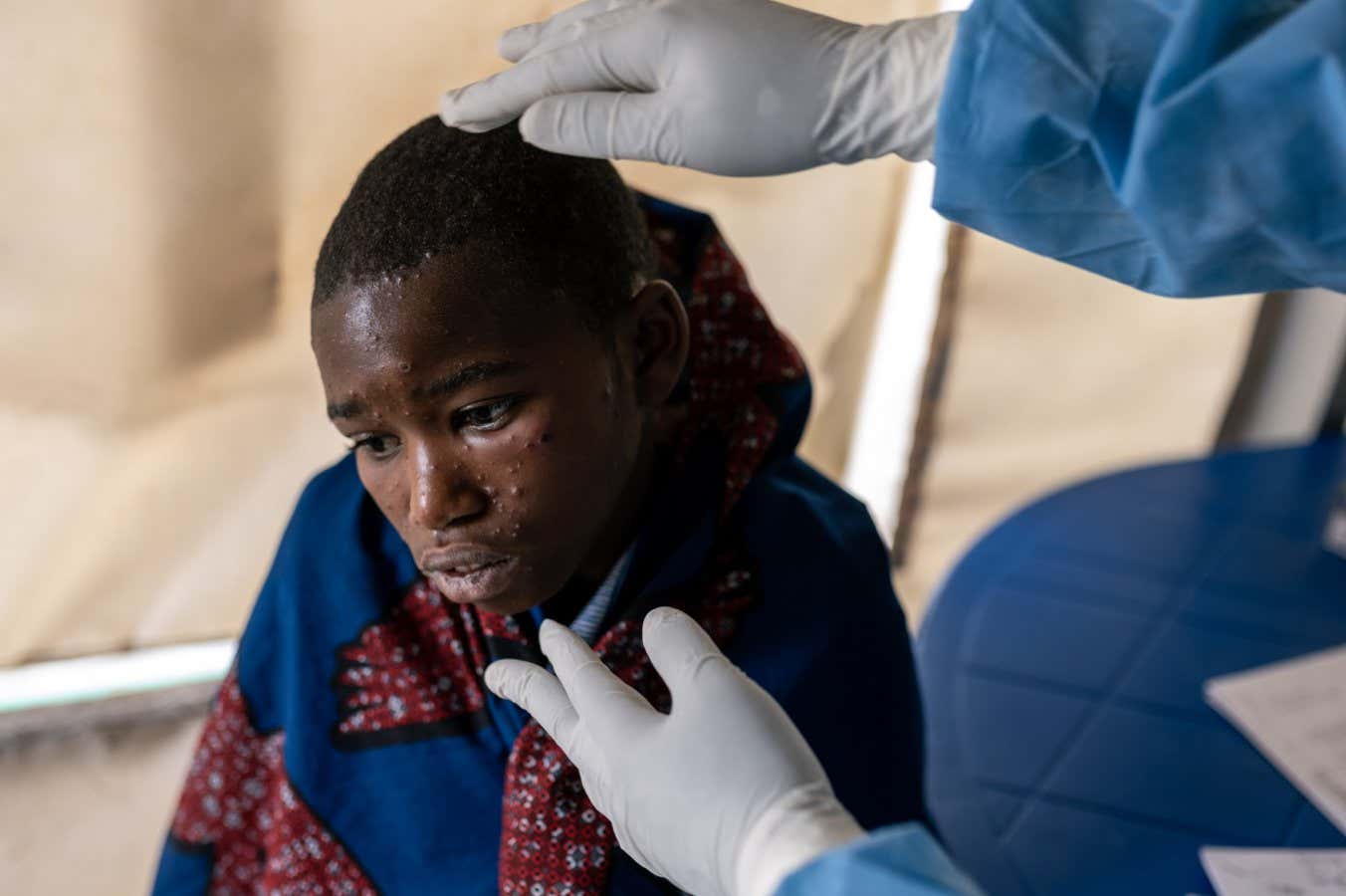When the fever, pains and pus-filled lesions of an mpox infection strike, how dangerous is it and how can it be treated?
By Carissa Wong
23 August 2024
A health worker assesses a suspected case of mpox in North Kivu, Democratic Republic of the Congo
Arlette Bashizi/Bloomberg via Getty Images
Mpox, formerly known as monkeypox, is driving an ongoing outbreak in the Democratic Republic of the Congo (DRC) and neighbouring countries. Surging cases are partly caused by a new variant that is thought to be more lethal than the version of the virus behind the global mpox outbreak in 2022. But there are treatments that could help.
How deadly is mpox?
Studies show that the fatality rate among people who catch the clade I variant of mpox, which is driving the ongoing outbreak, ranges from around 1 to 11 per cent. The variation in reported fatality rates is probably due to differences in the populations that have fallen ill, and to problems with disease surveillance, says Lilith Whittles at Imperial College London.
For example, infants and children, who have less developed immune systems, may be more likely to develop severe – and potentially deadly – infections compared with adults. And people with suppressed immune systems, such as those with HIV, are also more vulnerable, she says.
Advertisement
Everything you need to know about the mpox outbreak
The World Health Organization has declared mpox a public health emergency of international concern – a new variant of the virus has caused an outbreak in Central and West Africa and spread to Sweden
What’s more, people in some regions have little access to healthcare, and thus limited mpox surveillance. As a result, only the most severe cases end up being detected in healthcare clinics, while milder cases are missed, making fatality rates seem higher than they really are. More frequent misdiagnoses of mpox symptoms as another disease, such as measles or chickenpox, will also leave more cases undetected, says Whittles.
When people do die of mpox, it is due to complications such as sepsis, where the immune system overreacts to the virus entering the bloodstream and causes organ failure, or lung damage due to inflammation caused by the mpox virus, says Piero Olliaro at the University of Oxford.
